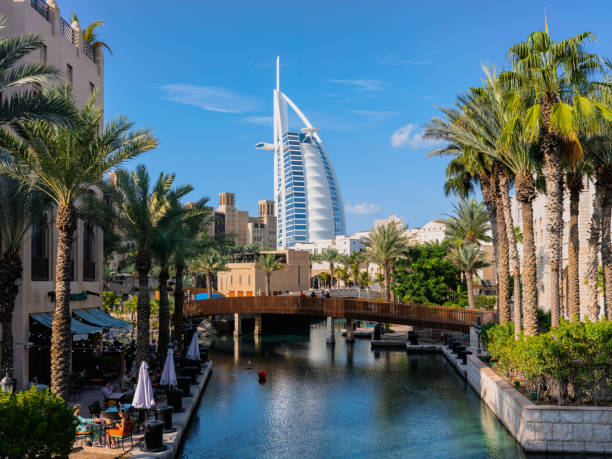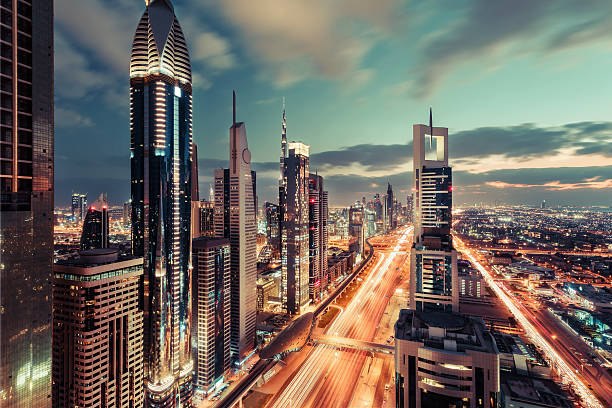The Impact of Dubai’s Free Zones on International Business Expansion
Dubai’s free zones have revolutionized the landscape of international business expansion by providing an array of incentives that attract foreign direct investment. These zones offer benefits such as 100% foreign ownership, tax exemptions, and easy startup processes that empower international businesses. This article explores how these hubs contribute to global commerce by fostering business growth, enhancing operational efficiency, and providing strategic access to regional markets. By understanding the impact of Dubai’s free zones, businesses can better navigate their expansion strategies in the Middle East and beyond.
Understanding Dubai’s Free Zones

Dubai’s free zones are specialized areas where business regulations differ from the rest of the emirate, specifically designed to stimulate economic activity and attract international companies. These zones provide an environment that fosters commerce, offering numerous benefits that appeal to investors across various sectors. Some of the most popular free zones in Dubai include:
- Jebel Ali Free Zone (JAFZA)
- Dubai Multi Commodities Centre (DMCC)
- Dubai Internet City (DIC)
- Dubai Media City (DMC)
- Dubai South
One notable free zone is the IFZA Free Zone in Fujairah, which offers significant advantages for businesses looking to establish themselves in a tax-efficient and business-friendly environment. For those interested in setting up a company within this dynamic jurisdiction, IFZA Free Zone provides an excellent platform to do so, with flexible business models and low setup costs. These zones are attractive to entrepreneurs seeking to establish a presence in the UAE while enjoying the benefits of full foreign ownership and tax exemptions.
Each zone is tailored to specific industries, allowing businesses to operate under regimes that support their unique needs. For example, JAFZA offers logistics and trade support, while DMCC focuses on commodities and financial services. This specialization not only attracts businesses but also enhances the overall value proposition of operating in Dubai.
Benefits of Operating in Free Zones

Choosing to operate within a Dubai free zone offers numerous advantages, making it an attractive option for businesses looking to expand internationally. Here are some of the key benefits:
- 100% Foreign Ownership: Unlike other parts of Dubai, foreign investors can fully own their businesses without the need for a local partner.
- No Corporate Tax: Most free zones offer significant tax incentives, such as zero corporate tax for a specific period, which can be extended.
- Repatriation of Profits: Free zones allow full repatriation of earnings, benefiting investors who wish to transfer their profits abroad.
- Efficient Set-Up Processes: The establishment procedures in these zones are streamlined, allowing businesses to start operations quickly.
- Access to World-Class Infrastructure: Dubai offers advanced infrastructure, including transportation, telecommunication, and logistics, crucial for smooth operations.
Dubai serves as a strategic gateway between East and West, facilitating international trade for businesses operating within free zones. Its geographical position allows companies to access over 2.5 billion consumers across Europe, Africa, and Asia within a few hours’ flight. This connectivity is vital for logistics and supply chain management and has enabled many businesses to establish regional headquarters in Dubai. Furthermore, robust shipping links and a leading airport that ranks among the busiest in the world make it easier to move goods and services globally, enhancing operational efficiency.
Challenges and Considerations
While the benefits of operating in Dubai’s free zones are enticing, businesses must also consider potential challenges. For example:
- Regulatory Compliance: Companies must adhere to the specific regulations of the free zone, which may differ from other jurisdictions.
- Limited Business Activities: Some free zones restrict certain types of business activities, which may not align with every company’s operational goals.
- Cost Implications: While setup costs in free zones can be attractive, the overall cost of living and doing business in Dubai can be high.
Understanding these challenges is crucial for businesses contemplating expansion into Dubai, ensuring thorough evaluations of their operational plans to mitigate risks effectively.
Conclusion
Dubai’s free zones have significantly impacted international business expansion by offering lucrative incentives and a conducive environment for growth. They provide unparalleled benefits, including 100% foreign ownership, tax exemptions, and superior access to global markets, which attract businesses worldwide. However, potential investors should consider the regulatory framework and cost implications to ensure a well-rounded approach to their market entry strategies. As global trade continues to evolve, Dubai’s free zones will play an increasingly critical role in shaping the future of international business.
Frequently Asked Questions
1. What is a free zone?A free zone is a designated area within a country where businesses can operate with special regulatory advantages, such as tax exemptions and less stringent rules regarding foreign ownership.2. How many free zones are there in Dubai?Dubai has over 30 free zones catering to various industries, each offering unique incentives tailored to specific business needs.3. Can I operate in multiple free zones at once?Yes, businesses can choose to operate in multiple free zones, but they must comply with the regulations of each zone.4. What are the typical costs associated with setting up in a free zone?Costs can vary significantly based on the chosen free zone, business activities, and the size of the operation, but they generally include registration, licensing, and office space fees.5. Do free zone companies have access to the UAE market?No, free zone companies are typically limited in selling directly to the UAE market unless they partner with a local distributor or obtain additional permits.





